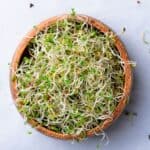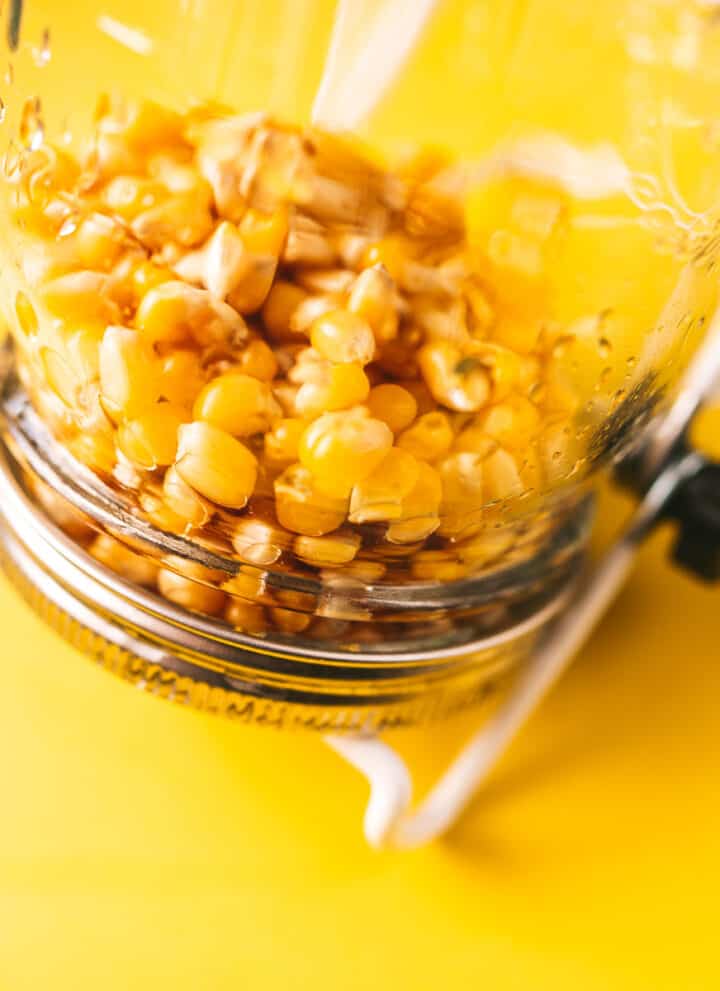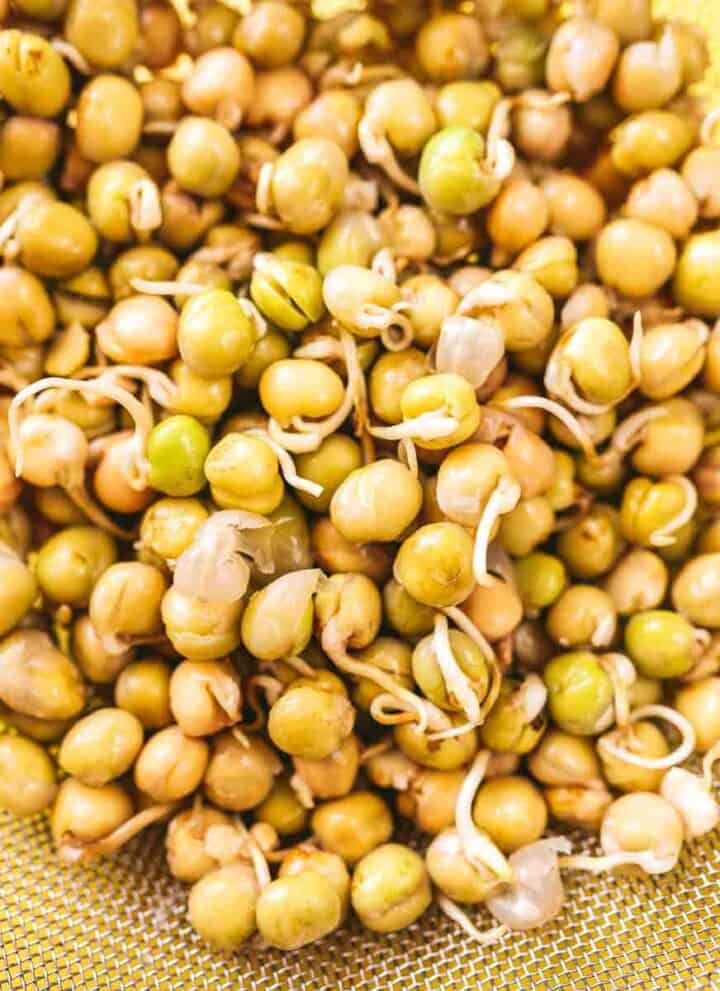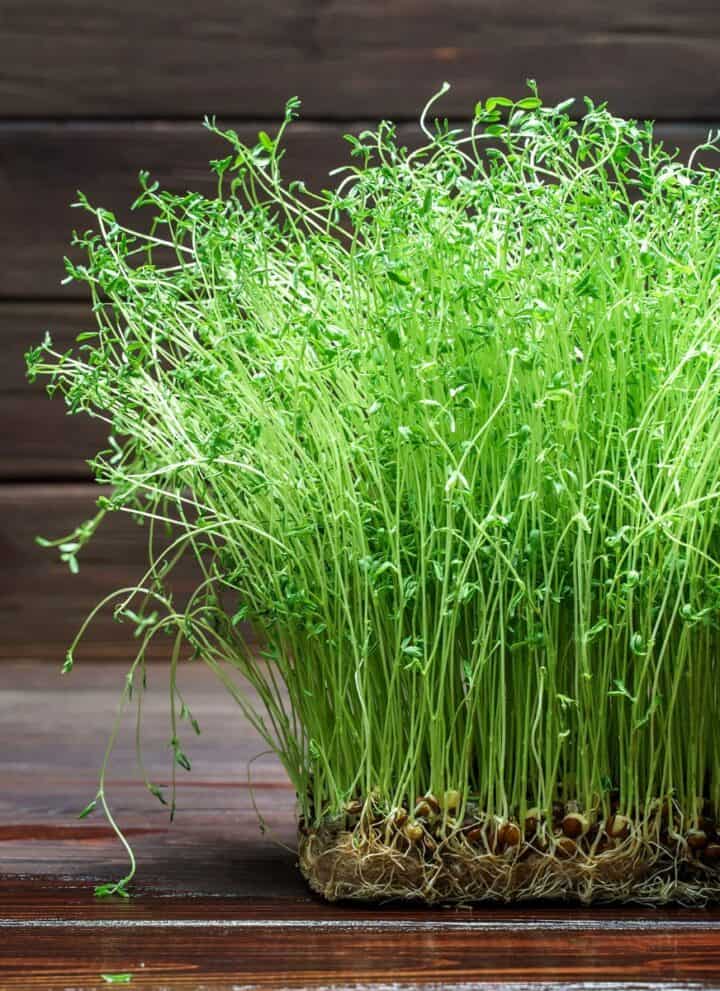Alfalfa sprouts vs broccoli sprouts: these are two powerhouses that pack a punch in terms of nutrition. Both are low in calories and rich in essential minerals. By incorporating alfalfa sprouts and broccoli sprouts into your diet, you can enjoy the nutritional benefits of these green leaves while supporting your overall health and well-being.

The potential health benefits of these sprouts are supported by extensive research, including studies conducted by institutions such as Johns Hopkins University. This research provides valuable insights into the role of cruciferous vegetables in promoting overall health and well-being.
Jump to:
While both types of sprouts have their own unique health benefits, they also have some safety and dietary considerations that should be taken into account.
Key Takeaways
- Alfalfa and broccoli sprouts are superfoods with high nutritional value and health benefits.
- Alfalfa sprouts are a good source of vitamins and antioxidants, while broccoli sprouts contain sulforaphane, a compound with anti-inflammatory and anti-cancer properties.
- Both types of sprouts have safety and dietary considerations that should be considered before consumption.

Nutritional Profiles and Health Benefits
Comparative Nutrient Content
Broccoli sprouts have a higher nutritional value than alfalfa sprouts. Broccoli sprouts are a good source of vitamin C, vitamin K, vitamin A, folate, manganese, copper, and iron. They are also rich in antioxidants and phytoestrogens. On the other hand, alfalfa sprouts are a good source of vitamin C, calcium, and iron. They are also packed with antioxidants and phytoestrogens.
Health Benefits of Broccoli Sprouts
Broccoli sprouts have higher sulforaphane content compared to mature broccoli plants. Being part of the cruciferous vegetable family, the sprouts contain a variety of enzymes and nutrients that have been linked to potential health benefits. Cruciferous vegetables have been associated with cancer prevention, and studies have shown that the consumption of broccoli sprouts may have a positive impact on conditions such as Alzheimer's, autism spectrum disorder, Parkinson's disease, prostate cancer, and lung cancer.
Health Benefits of Alfalfa Sprouts
Alfalfa sprouts are rich in vitamin C, which is important for maintaining a healthy immune system and preventing infections. They are also a good source of calcium, which is essential for strong bones and teeth.
Alfalfa sprouts contain phytoestrogens, which are plant compounds that mimic the effects of estrogen in the body. Phytoestrogens may help reduce the risk of breast cancer and other hormone-related cancers. Additionally, alfalfa sprouts have anti-inflammatory properties and may help reduce the risk of heart disease.
Both broccoli sprouts and alfalfa sprouts have their own unique nutritional profiles and health benefits. While broccoli sprouts are believed to have cancer-fighting properties due to their high sulforaphane content, alfalfa sprouts are rich in vitamin C, calcium, and phytoestrogens. Incorporating both types of sprouts into a balanced diet can provide a variety of nutrients and health benefits.

Culinary Uses and Flavor Profiles
Flavor and Texture Differences
Broccoli sprouts and alfalfa sprouts have different flavor profiles. Broccoli sprouts have a slightly bitter taste with a hint of sweetness, while alfalfa sprouts have a mild nutty flavor. Broccoli sprouts also have a slightly crunchy texture, while alfalfa sprouts are more delicate and tender.
Both types of sprouts can be used interchangeably in salads and sandwiches. However, broccoli sprouts are a great addition to wraps and sandwiches that need a little extra crunch. Alfalfa sprouts, on the other hand, are perfect for salads and smoothies where a delicate texture is desired.
Versatility in Dishes
Both broccoli sprouts and alfalfa sprouts are versatile and can be used in various dishes. They are a great way to add a fresh, crunchy texture to salads, sandwiches, wraps, soups, and stir-fry dishes.
Broccoli sprouts are also a great addition to omelets and quiches, while alfalfa sprouts can be juiced or blended into smoothies. Both types of sprouts are also commonly used in Asian cuisine, especially in dishes like stir-fry and spring rolls.
Overall, both broccoli sprouts and alfalfa sprouts are fresh, healthy, and versatile ingredients that can be used in a variety of dishes. Their unique flavor profiles and textures make them a great addition to any meal.

Safety and Dietary Considerations
Potential Risks and Allergens
While sprouts are generally considered a healthy snack, there are some potential risks associated with their consumption. Sprouts, including alfalfa and broccoli sprouts, have been linked to food poisoning outbreaks in the past due to their potential to harbor bacteria such as E. coli and Salmonella.
Individuals with weakened immune systems, such as young children, pregnant women, and the elderly, are at a higher risk of developing complications from consuming contaminated sprouts. It is recommended that these individuals avoid consuming raw sprouts altogether.
Additionally, some individuals may have allergies to certain types of sprouts. Alfalfa sprouts, in particular, have been known to cause allergic reactions in some people. Symptoms may include hives, swelling, and difficulty breathing. If you experience any of these symptoms after consuming sprouts, seek medical attention immediately.
Best Practices for Consumption
To reduce the risk of foodborne illness, it is recommended that sprouts be thoroughly washed before consumption. This can help to remove any potential contaminants that may be present on the surface of the sprouts.
It is also recommended that sprouts be cooked before consumption, as cooking can help to kill any potential pathogens that may be present. However, it is important to note that cooking may also reduce the nutritional content of the sprouts.
Individuals who are at a higher risk of developing complications from foodborne illness, such as young children, pregnant women, and the elderly, should avoid consuming raw sprouts altogether.
Overall, sprouts can be a healthy addition to one's diet, but it is important to take proper precautions to reduce the risk of foodborne illness. By thoroughly washing and cooking sprouts, individuals can reduce the risk of contamination and enjoy the potential health benefits of these nutrient-rich foods.

Comparison and Final Thoughts
Both broccoli sprouts and alfalfa sprouts are nutritious and delicious additions to any diet. While they share some similarities, they also have some key differences that set them apart. Here is a comparison of the two:
Nutritional Content
Broccoli sprouts are a great source of dietary fiber, protein, and antioxidants. They are also rich in sulforaphane, a compound that has been linked to a number of health benefits, including reducing the risk of breast cancer and protecting against UV damage. On the other hand, alfalfa sprouts are a good source of vitamin K, calcium, and iron. They also contain a compound called saponin, which has been shown to have antioxidant effects.
Sprouting Process
Both broccoli and alfalfa sprouts are grown using a similar sprouting process. However, broccoli sprouts take longer to grow and require more attention to detail. This is because they are more susceptible to mold and bacterial growth.
Gut Health
Both types of sprouts are good for gut health. Broccoli sprouts contain fiber, which helps promote healthy digestion and regularity. Alfalfa sprouts contain a type of dietary fiber called oligosaccharides, which can help feed the good bacteria in your gut.
Winner
While both broccoli and alfalfa sprouts are healthy choices, broccoli sprouts have a slight edge when it comes to overall nutritional content. They contain more protein, fiber, and antioxidants than alfalfa sprouts. However, the choice between the two ultimately comes down to personal preference.
In conclusion, broccoli sprouts and alfalfa sprouts are great additions to any diet. They are both nutritious and delicious. When choosing between the two, consider your personal preferences and nutritional needs.


















Comments
No Comments